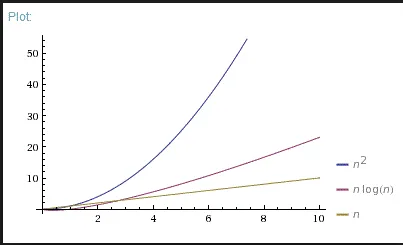
Since the rise in prices for STEEM and SBD, there seems to be more of the crab bucket mentality going on.
While others are having some success and earning rewards(whatever strategy: self-vote, collusion, etc.), some are passing judgment on whether or not a particular individual should be earning the amount of rewards they are getting. There are valid issues in some cases but everyone is able to use their stake the way they want.

I find it funny because when the prices were around a dollar, there was not as much complaint about individuals earning too much. Now that we see the SBD price up, a lot of users are earning hundreds to thousands and I see a lot of users having the attitude of “If I can’t have it, neither can you”. We see some try to bring others down so they can get up on top and get out of the bucket.
Naturally, this behavior is formed being that this platform is social media combined with a monetary system. We see this all around society in the workplace, government, etc. I only can recommend staying focused and do your own thing.
As for valid issues, we can help look for solutions.
What Can Be Done to Improve the Platform and Help Fight Abuse?
Downvote System.
Not many users that have a lot of influence on the platform think there needs any change to this but perhaps we need to revisit the functionality of the downvote system and make some changes to it.
There are no rewards to downvoting(not saying there should be) and vote power gets used up. However, it benefits others on the platform when downvotes are used for valid reasons but some may feel it is not worth to use so frequently as they might see it as they are losing out on potential rewards.
If we could find some way to implement some type of consensus system within the downvote function, perhaps that could bring more positive results?
Communities
This feature is in the works and I believe this will help with abuse to a certain extent. Different communities could allow groups to set so-called "rules" and be able to decrease abusive behavior. As mentioned in the 2017 Roadmap:
Two types of communities will exist: communities into which anyone in the world can post
(where community founders (or their delegated moderators) can decide, post-hoc, which
posts to hide from view) or communities in which only community founders’ (or their
delegated authors’) posts will appear.
Having moderation can give specific communities the ability to maintain content within their own community namespace that could eventually lead to less abuse.
Changes in Curation System
As mentioned in the Hardfork 20 (“Velocity”) development update post:
Eliminating self-voting rewards through curation
While the change to 15 minutes will even the playing field against bots, it doesn’t address the advantage self-voting gives to accounts with respect to curation rewards. If authors vote for themselves right away, they get their author rewards, 100% of the curation rewards from their vote, plus a portion of the curation rewards coming from everyone who votes for the post after them. Any other curator voting at the same time as the author would get 0% of the curation rewards. This gives the author an unfair advantage over other curators because the author can earn additional curation rewards through self-voting.In order to eliminate this unfair advantage, the unused portion of the curation rewards will be returned to the rewards pool instead of being awarded to the author, thereby increasing the overall percentage of rewards that will be paid to curators. This will better serve the original mission of the curation rewards budget: to ensure that the Steem blockchain distributes rewards to the most valuable content.
This does help from self-voting authors earning curation rewards but they can always earn some of that curation through alternate accounts. Just maybe not as much with the current system.
Test Reward System Other Than Linear.
Also mentioned above in the HF20, is to implement a shift to all votes:
After discussion with the witnesses, it was decided to apply the “vote dust” shift to all votes equally. Each vote that is cast will be shifted down by about 1.219 SP. This effectively establishes a “baseline” voting strength that applies to everyone, while still maintaining a linear rewards curve for votes above the baseline. This way even large Steem Power holders won’t be able to profit from casting countless inconsequential votes.
This is something we would have to see how much of an impact this will have but not everyone may agree with this change. Perhaps we can revisit the idea of trying out other reward systems mentioned in @clayop's post: Making Steemit Better: A Proposal to Flatten the Rewards Curve

Conclusion
With all this in mind, we can come to a consensus to find a better solution to improve this platform for investors, users, and everyone else in between. Also to find the best balance to drive up the demand for STEEM.
Image Sources: 1,2,3